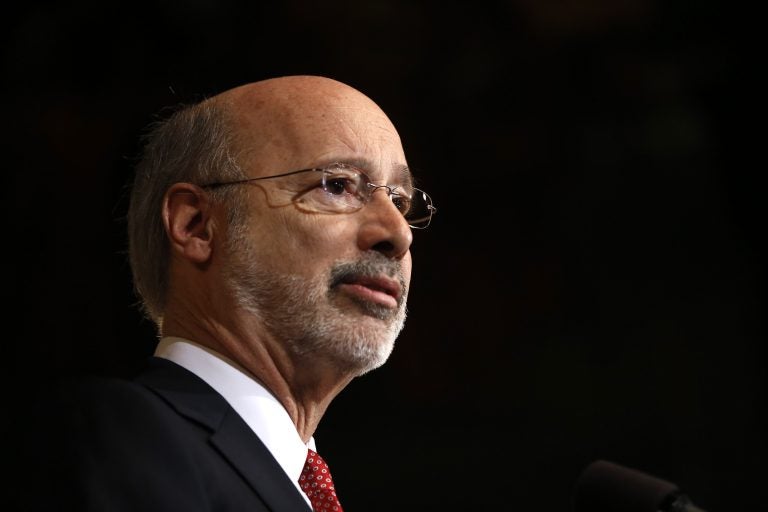Positive feedback from rural communities on Wolf’s broadband plan
Governor Wolf has launched an initiative to improve broadband access in rural Pennsylvania—and state lawmakers and other officials in underserved areas appear to be on board

Governor Tom Wolf (Matt Rourke/AP Photo)
Governor Tom Wolf has launched an initiative to improve broadband access in rural Pennsylvania—and state lawmakers and other officials in underserved areas appear to be on board.
Chiefly, the plan will involve an incentive program that’ll offer up to $35 million to telecommunication companies bidding for Pennsylvania service areas through a federal auction.
It’ll allow the commonwealth to take advantage of some of the $2 billion the Federal Communications Commission is giving to companies who expand into underserved areas.
Money for the incentives will come from PennDOT, which aims to bulk up its wireless network along the commonwealth’s roads to make way for higher-tech vehicles.
GOP state Representative Kristin Phillips-Hill, a York County Republican, has been working on expanding broadband for months.
She said she was previously frustrated Wolf hadn’t done more, but that this is a big step forward…
“The [internet speed] standard in Pennsylvania is 1.544 megabytes per second. The federal standard is 25.3 megabytes per second,” she said. “1.544 is You’ve Got Mail [the 1998 movie prominently featuring dial-up internet]. That’s not going to empower rural Pennsylvanians.”
Bob Garrett, president of the Greater Susquehanna Valley Chamber of Commerce, said he’s in the “crosshairs” of the underserved regions Wolf’s initiative covers.
He welcomes the move—noting while most parts of the state already have some kind of internet access, they need help with “connectivity and affordability issues.”
Wolf said he’s still interested in working with the legislature on further broadband-expansion measures, including four bills Phillips-Hill and Fayette County Democrat Pam Snyder have drafted.
One of the measures would start a legislative commission to recommend broadband improvements. Another would see if existing infrastructure could be used to expand service, and yet another would investigate telecommunications companies’ compliance with state regulations.
A fourth would direct the Auditor General to review an existing technology program that’s administered through the Department of Education.
WHYY is your source for fact-based, in-depth journalism and information. As a nonprofit organization, we rely on financial support from readers like you. Please give today.





